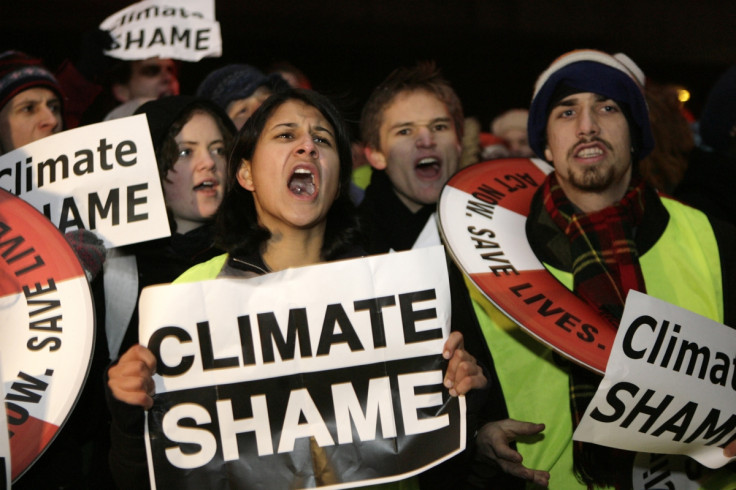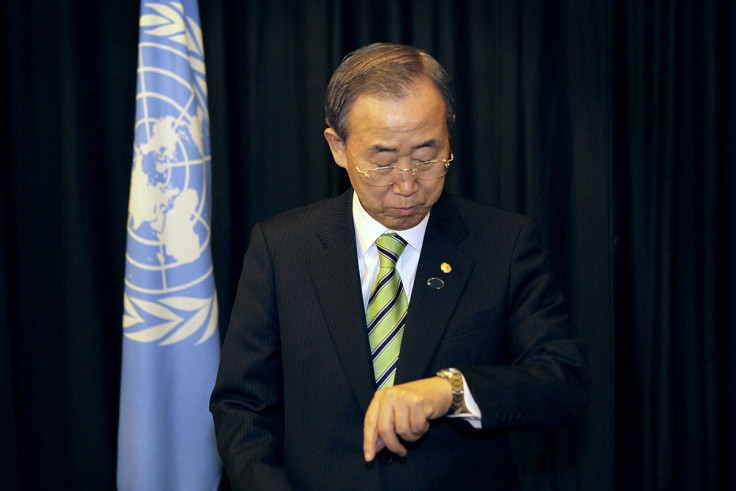UN Climate Change Conference: Future of the Earth hinges on COP21 in Paris

From 30 November to 11 December, delegations from over 190 countries will descend on Paris for COP21 - the 21st annual conference of the UN Convention on Climate Change. It looks to be an interesting one.
Surprisingly, plans have been submitted by at least 147 countries, but even with the heightened rhetoric surrounding it, it still doesn't look like the convention will achieve it's goal. Even with these new plans the Earth would still see global warming of 2.7°C - less than previously projected but still above the generally accepted safe limit of 2°C.
The EU's Commissioner for Climate Action and Energy, Miguel Arias Cañete, hailed the unprecedented number of plans to reduce carbon emissions submitted by countries in an interview with the BBC, but added that "clearly it's not enough".
In a speech in Alaska, US President Barack Obama said "the fact is that climate is changing faster than our efforts to address it. That, ladies and gentlemen, must change. This year in Paris has to be the year that the world finally reaches an agreement to protect the one planet that we've got while we still can."

The plan set out last year at the 20th annual conference in Lima, Peru, was called weak and vague, so why pay attention to what's going on in Paris? Because they're hoping for a new, universal, legally binding deal on climate change - the first one since Kyoto.
It's been 18 years since the Kyoto Protocol, the first binding agreement on the reduction of climate emissions. In 2020, the Protocol runs out - this year they're hoping to create its successor.
However, the Kyoto agreement wasn't exactly a massive success. The protocol only really covered developed nations, with developing nations saying that their economic growth was more important and that developed countries had more of a historic responsibility for CO2 levels in the atmosphere.
The protocol also did little to actually curb emissions - the US, the worlds largest emitter of greenhouse gases at the time, signed the document but never ratified it in Congress; Russia only ratified it in 2004.
After 2011's marathon talks in Durban, South Africa, the final hold-out countries agreed to a proposal that should mean a new global agreement on climate change is decided this year in Paris.
Though the conference could fail. The Copenhagen summit in 2009 started with high hopes. Countries seemed ready to sign up en masse to a new protocol and it wasn't delegates but instead world leaders that were attending. Unfortunately, the summit ended up with a limp agreement that didn't contain any solid commitments to reducing emissions.

The pressure is on this year. Even the 2°C target is considered high by countries that look to be affected the worst by global warming. Island nations are especially worried about how they'll deal with rising sea levels - and at the moment, the world isn't going to reach that target.
According to the Intergovernmental Panel on Climate Change, "ecosystems, human health, fresh water resources and agriculture" have all already been affected by changes in the Earth's temperature. Further increases will affect more people.
A number of groups are calling for action to pressure global governments as the talks come closer - marches are being organised all around the world in the days before the conference begins. Talk is starting to get apocalyptic.
Environment journalist, Fiona Harvey wrote in Ensia that "we will either have a new international agreement on cutting greenhouse gas emissions, or we will have seen the last of truly global efforts to strike a deal on saving our planet".
Cañete, who will lead the EU delegation in the talks, told the Guardian that there is "no plan B – nothing to follow. This is not just ongoing UN discussions. Paris is final."
Paris is being treated as a final hope after decades of attempts to get the world to agree on how to tackle the threat of climate change. Countries that have previously been obstinate, like the US and China, are seeming more agreeable this time around - though India still argues that the brunt of the responsibility should be on developed nations. The European Parliament asked for the new protocol to include five-year commitment periods to "avoid locking into low levels of ambition."
There's reason to be hopeful that something will come out of Paris - though it might not be as much as we really need. But without a deal at the end of COP21, the chances of an effective, global response to climate change seem thin.
© Copyright IBTimes 2025. All rights reserved.






















